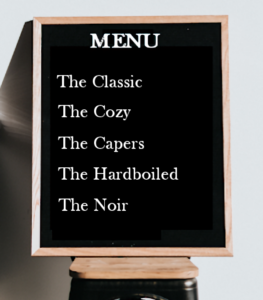 When I was writing my first novel, a friend asked what kind of book it was. I said it was a cozy mystery, but she didn’t know what that was, so I explained, “It’s a mystery with no explicit violence, no explicit sexual content, and usually no profanity. After her cheerful, “I guess you realize there’ll be no audience” response, I pretended to smile. (I get that remark a lot.)
When I was writing my first novel, a friend asked what kind of book it was. I said it was a cozy mystery, but she didn’t know what that was, so I explained, “It’s a mystery with no explicit violence, no explicit sexual content, and usually no profanity. After her cheerful, “I guess you realize there’ll be no audience” response, I pretended to smile. (I get that remark a lot.)
But then I got to thinking. Many, if not all, of Agatha Christie’s works fall into the category I had explained to my friend, as do Dorothy Sayers’ books. Why aren’t they considered cozies? So here I am, several novels down the road, and I wonder if I should revisit this whole genre thing.
* * *
Dictionary.com defines a mystery as “a novel, short story, play, or film whose plot involves a crime or other event that remains puzzlingly unsettled until the very end.”
The search for a definitive list of mystery subgenres was more complicated than I thought it would be. Mysteries can be subdivided in many different ways depending on the point of view of the person defining them. I found an article I liked on the website of the Handley Regional Library System, and I’ve used that as a basis for this list. (Please note this is not intended to be an exhaustive description of the genre. I’ve combined some of my own opinions with those I’ve found in articles on the subject.)
* * *
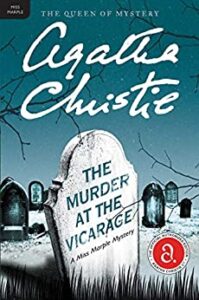 Classic Mysteries can be exemplified by Agatha Christie’s works. There is a crime, usually a murder, and the story is concerned with identifying the killer(s). Classic mysteries, like cozies, generally don’t include any explicit violence or sexual content, and there’s usually no profanity. Some of the notable entries in this category are Agatha Christie’s Miss Marple novels and Sir Arthur Conan Doyle’s Sherlock Holmes stories.
Classic Mysteries can be exemplified by Agatha Christie’s works. There is a crime, usually a murder, and the story is concerned with identifying the killer(s). Classic mysteries, like cozies, generally don’t include any explicit violence or sexual content, and there’s usually no profanity. Some of the notable entries in this category are Agatha Christie’s Miss Marple novels and Sir Arthur Conan Doyle’s Sherlock Holmes stories.
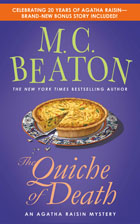
Cozy Mysteries can be seen as a subset of classics. As noted above, cozies also don’t contain explicit violence or sexual content and rarely use profanity. The action usually takes place in a small village or on a university campus. Cozies almost always have an amateur sleuth who becomes involved in the case and may solve it. (But then, wasn’t Miss Marple an amateur sleuth?) Over the years, cozies have evolved, and current examples may include paranormal elements, animals helping solve crimes, or other unusual aspects. (This is why I wondered if my books are in the wrong category.) M.C. Beaton’s Agatha Raisin series and the Murder, She Wrote series are examples of this subgenre.
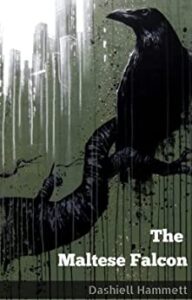
Hardboiled or Noir Mysteries – These two subgenres that were very popular in the 30’s and 40’s seem to be interchangeable. They’re often characterized by a no-nonsense detective who battles the creeps and criminals in an urban environment. According to the Handley Regional Library blog, “Noir protagonists are complex characters who are flawed, risk takers and often self-destructive.” Makes one immediately think of Raymond Chandler’s detective Philip Marlowe: “I’m an occasional drinker, the kind of guy who goes out for a beer and wakes up in Singapore with a full beard.” Or Dashiell Hammett’s detective, Sam Spade. Michael Connelly is quoted as saying, “Chandler credited Hammett with taking the mystery out of the drawing-room and putting it out on the street where it belongs.”
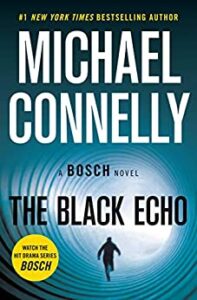
Police Procedural Mysteries focus on the investigation process of a police officer or officers. There are several in this subgenre that I like: The Dublin Murder Squad series by Tana French, the Bosch series by Michael Connelly, and The Dry by Jane Harper.
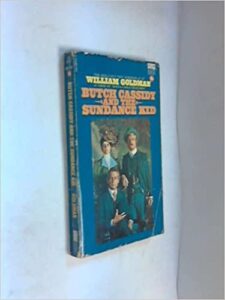
Capers are a kind of mystery where the reader is in on the crime. I don’t know a lot about this subgenre, but the description sounds like some likeable criminals who pull off a crime and fool the inept authorities. One example in this category is William Goldman’s Butch Cassidy and the Sundance Kid.
There are other subgenres that I discovered, including True Crime, Legal Thrillers, Howcatchem (the opposite of Whodunit), Historical, and Locked Room. But there’s so much crossover between subgenres that it’s hard to pigeonhole a book into just one area.
So I’m still not sure how to refer to my books. For now, I’ll just stick with Mystery.
* * *
So TKZers: What subgenre of mystery do you prefer? Who’s your favorite author or authors? If you write mystery, what subgenre are you in?
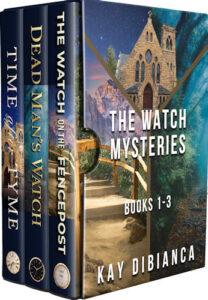
The Watch Mysteries: Books 1-3

Good morning, Kay. Good overview of the main mystery sub-genres. As a now retired librarian, this tracks with my ow library system’s divisions. This is useful because all where filed in our mystery section.
Cozy mystery is my favorite, followed by traditional, though I also enjoy hard boiled, and a handful of police procedurals.
Within cozies, some of my favorite authors are Sara Rosett (Murder on Location series), H.Y. Hanna (English Garden Mysteries), Joanna Fluke (Hanna Swenson series), Nancy Warren (her Vampire Knitting Club paranormal cozy series), Lauren Ellliott (Beyond the Page Bookstore Mysteries).
In traditional my favorite authors include Arthur Conan Doyle (Sherlock Homes), Agatha Christie (Hercule Poirot is my favorite of hers), Dorothy Sayers (Lord Peter Wimsey), and Josephine Tey.
In Hardboiled it’s Robert B. Parker (Spenser series).
In Police procedural my favorite is easily Tana French (Dublin Murder Squad).
My own Meg Booker Librarian Mysteries series is very much a cozy series, falling into the library cozy sub-sub genre, but it’s also historical, since it’s set in the 1980s. One of my beta readers told me she *is* my target reader, since she loves cozies *and* libraries. It’s very helpful to have a beta reader who is really into the specific sub-sub-genre.
Thanks for another insightful post and a great start to this Monday. Have a wonderful week!
Good morning, Dale!
Thank you for sharing your favorites in the mystery genre. Your librarian’s knowledge of the “big picture” is so helpful.
You and I are on the same wave length when it comes to classics and police procedurals. I would have chosen the same authors you did. I’m not familiar with all the cozy authors you mention, though, so I’ll have to read some of those. Btw, where would you place Louise Penny in this breakdown?
I think I would place the Inspector Gamache books into police procedural, perhaps with a dash of cozy because of Three Pines itself, since setting tends to be so important in cozies and it’s very important in Penny’s books. BTW, she herself categorizes them as “psychological thrillers,” rejecting the cozy label: https://www.theglobeandmail.com/arts/books/article-louise-penny-cozy-mysteries-myth/
An example of how an author can view where a novel fits very differently from reviewers and perhaps even readers.
When I read the first book in the Three Pines series, Still Life, I thought it was a cozy mystery. (It’s in that category on Amazon.) But when I read a few of the later books in the series, Penny seemed to move away from that. So it looks like even within a series, the author can move from one subgenre to another.
Thanks for the link about Penny, Dale. My favorite line is: “crime is emotion gone rancid.”
Fantastic overview of mysteries, Kay! For those searching for more details, John Truby’s recent The Anatomy of Genres spotlights several. Also, Robert McKee’s Story offers a baseline. Dale gave us several excellent examples of cozies. I love it when an author gives us a mashup of genres. For example, A. G. Riddle wrote the mind-bender Lost in Time, combining mystery, thriller, and time travel.
Good morning, Grant.
I haven’t read The Anatomy of Genres, but just looked at it on Amazon, and I think I need to read it. Just skimming the “Look Inside,” I noted one of Truby’s Key Points: “Writers should know how all the major genres work.” That struck a chord since many (most?) books have elements of more than one genre in them. I know mine do.
I also love the mashup of genres. Randy Ingermanson’s series The City of God is a combination of time travel and suspense.
I have picked it up, but have only had a chance to dip into it. From what I’ve seen, it’s definitely worth reading.
I discovered mysteries with Sherlock Holmes, and to this day, the POV of the detective is my favorite. But I also like looking beyond the office, seeing the ‘real’ lives of the characters when they weren’t working. When I was shopping Deadly Secrets, one editor who liked my writing said to decide if I wanted to write a police procedural or a cozy, because they couldn’t market it the way it was written. I decided readers might not care, and the indie market was just getting started, so I published it myself. Reviewers called it (and the subsequent series), a police procedural with a cozy feel.
You think mystery has a lot of sub-genres—look at romance!
“Police procedural with a cozy feel” is a terrific tagline! It’s how I characterize the TV series “Midsomer Murders” which also has a dollop of humor with each story.
Good morning, Terry!
I like the idea of combining more than one sub-genre. Police procedural with a cozy feel is a great way to set the reader’s expectations of the content.
(On a related topic, maybe we should petition Amazon to add more categories. 🙂 )
A police procedural with a cozy feel describes your books perfectly, Terry! They’re also a great read.
Thanks so much, Patricia!
This is a subject that gives me a headache. 😎 And who are these sub-genre labels for anyway? I mean yes, if a person is searching for books online, they can scroll down on the Amazon page and see what category/categories the mystery is in. But if you’re browsing a physical bookshelf, the reader has absolutely no idea what sort of mystery it is so it’s still hard for them to find a mystery to suit their taste so you have to wing it (for example, I would steer away from dark and foreboding covers, yet if the cover has a theme that’s too ‘fluffy’ I may not pick it up either).
I’ve wrestled with my first mystery in categorizing it. At first I thought it should be classified as cozy because, while there is murder involved, it’s not graphic in that or other ways. Yet the types of books I see labeled as cozies seem to be thematic in the sense that the amateur sleuth is a baker etc. So calling it a cozy doesn’t feel quite right.
And in my mystery’s case, it’s also historical since it takes place circa 1917. So, in my mind at least, at the moment I simply consider it a traditional mystery but would also classify it under historical mystery.
When I have time I’d like to read back cover copy of mysteries in my genre/subgenre and see how they read. How much, if any, of an indicator does back cover copy give to the type of mystery it is?
Good morning, BK.
I’m with you on the headache. Our human nature wants to categorize things so we can fit them into a simple picture. But stories don’t lend themselves as well to a distinct breakdown as other areas of life like, say, the animal kingdom.
So what’s an author to do? You mention the back cover copy. That seems like a good place to refine the category so the reader has an idea of what he/she is getting into.
Good luck on your book and its category!
Hardboiled for me. Chandler, Spillane, Hammett.
The “occasional drinker” Chandlerism is one of my favorites, though it comes not from Marlowe but a short story, “The King in Yellow.” From Marlowe, my favorite is: “It was a blonde. A blonde to make a bishop kick a hole in a stained-glass window.” – Farewell, My Lovely
Good morning, Jim!
I suspected you would choose the hard-boiled category. Thanks for clarifying where the “occasional drinker” quote came from. Chandler was a master.
Deciding on just a few categories was hard. I wasn’t sure if I should have included thrillers as a subset of mystery.
Great post, Kay. Nice look at the subgenres.
My favorite mystery subgenre is comic mystery. And my favorite author is Lawrence Block with his Bernie Rhodenbarr series. By the end of the day, when I have time to read, I’m ready for some comic relief. The world is full of enough tension and conflict. By the way, Block’s book on writing: Writing the Novel, from Plot, to Print, to Pixel is excellent.
Thanks for leading this discussion. I’m eager to read all the responses today.
Have a mysteriously wonderful day!
Good morning, Steve.
Comic mystery! You’ve added another subgenre. I haven’t read any of Lawrence Block’s books, but I’m with you — at the end of the day, it’s nice to sit back and have a good chuckle. We all need that.
Thanks for adding to the conversation. Have a great week.
As always, Kay, a wonderful summary of this broad genre. Can’t remember who but someone said “all stories are mysteries b/c we read to find out what happens next.
At a conference, I heard a good distinction between mystery and suspense–another overlapping genre. The author said a mystery is whodunnit. In suspense, you know whodunnit. The question is howdunnit and are they going to get away with it?
My fave genre is hard-boiled/noir. Chandler is the king of the tarnished knight hero striving for justice in an unjust world.
A reviewer called one of my books a “cozy thriller” perhaps b/c of the small-town Montana setting. But there’s sex, cursing, and violence. I classify my books as psychological suspense thrillers but I dunno.
Thanks for the Monday morning mind stretch, Kay.
Good morning, Deb.
I agree with you about Raymond Chandler. Long live the king.
I would not have put your books in the cozy arena. Your definition of them as “psychological suspense thrillers” is perfect. And you have a new one getting ready to take its place with the others. Congratulations!
Subgenres of mystery are marketing tools so you can find your audience and your audience can find you. Never define your genre by books that were written in the Golden Age of mystery or older because mysteries and the reader’s expectations have changed drastically. Read what is being written now to understand what the reader wants. So ends my brief dissertation on defining genre.
Thank you for your brief dissertation, Marilynn. Well stated.
What a great topic!
❖ What subgenre of mystery do you prefer?
❦ Cozies ala MC Beaton (but NOT Agatha Raisin stories). I’ve also read a lot of Colin Dexter’s Inspector Morse and HR Keating’s Inspector Ghote Procedurals, I gave up reading Tony Hillerman’s series when Joe Leaphorn destroyed evidence at the end of one book.
❖ Who’s your favorite author or authors?
❦ The above, plus Simenon, John Watson, M.D., Poe, and Wodehouse, who wrote cozies without crime, mostly.
❖ If you write mystery, what subgenre are you in?
❦ My WWII thriller acquired a locked room (How-Dun-It) sub-plot when I discovered that Hitler’s niece/mistress was found dead in a locked room in Munich while ‘Der Failure’ was away in Nuremberg. A key question was this: If Hitler’s Mercedes could hold four passengers, who might the fourth man have been? The answer was obvious, and the implications stunning. Why-Dun-it? Same as for the Holocaust.
❦ My WIP includes a Mystery/Romance/Western, where I shoot the former Sheriff on the first page. I replace him with a reluctant, grief-stricken teacher, who meets a handsome State LEO during the investigation.
Good morning, J Guenther.
Great list. I’m familiar with the MC Beaton books, but you’ve given me some new authors I need to look into.
(Love “Der Failure.”) What is the title of your WWII thriller?
Thank you. My thriller is In the Mouth of the Lion. The main characters are Carl Jung and Mary Bancroft. Did Jung really visit Hitler to treat his insomnia? Unlikely. But Jung actually did work for the OSS as Agent #488. Mary was an OSS analyst. And Allen Dulles once said: “Nobody will probably ever know how much Professor Jung contributed to the Allied cause during the war…His work [must stay] highly classified for the indefinite future.”
I like them all, depending on my mood. And the first page. I read a lot of books accidentally–I see a post reviewing a book and it interests me enough to hop over to Amazon and read the opening, and get hooked.
I’m listed as a romantic suspense author, but I’m more of a suspense with a twist of romance since usually less than 25% of my book involves the romance.
I’m with you, Patricia. I like all the subgenres. And your comment gives weight to the importance of that first page in making a decision whether or not to buy the book.
Suspense with a twist of romance. I like that. Maybe we can get Amazon to add it as a category.
Have a great week.
An immensely interesting topic, Kay.
What I am attempting to write doesn’t fit neatly into any of these genres except it definitely isn’t cozy. I lean more toward the Chris Offutt/Daniel Woodrell/Harry Crews/William (Buffy) Hastings/Richard Marinick/Leonard Gardner/George V. Higgins spectrum
.
Call it white trash noir, for lack of a better phrase. I’m still trying to define it.
I figured JSB would gravitate to the Spillane/Chandler/Hammett side of the spectrum-a person who lives in SoCal can hardly avoid it, but the private eye is a little dated to me, even though my spouse did that for a while and a friend was an undercover in a case of massive theft of office equipment at an Atlantic City newspaper.
That might even be an idea for a story.
But you can always find some sort of person who is entitled or has a reason to poke their nose into affairs that turn sketchy awful fast. They’re a good stand in for a PI.
Hi Robert,
“White trash noir?” I think you’ve come up with a new subgenre. Glad you found this an interesting topic and thanks for a list of new-to-me authors.
Have a great week.
Mike Befeler writes mysteries that take place in retirement homes. He calls them “Geezer lit.”
“Geezer lit” – love it.
Remember is a great mystery movie that stars Christopher Plummer as a nursing home resident who has dementia, but who sets out to kill a Nazi war criminal. I can often figure out the endings of movie mysteries, but this one took me by surprise.
Thanks, Kay. Glad to know I’m not the only person who gets a headache on this topic.
On a side note, the Chandler quote…
Man, to be that good.
Sigh.
It’s good to have someone to commiserate with, Rose. Thanks for letting me know.
As for Chandler, a sigh is probably the best way to express my awe.
Glad you dropped by. Have a good week.